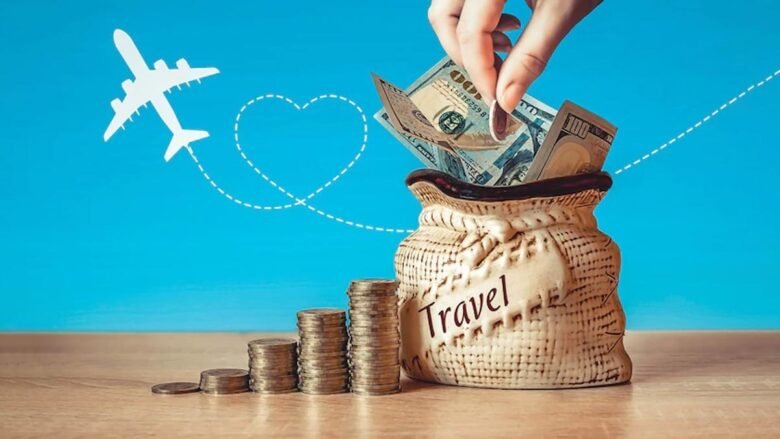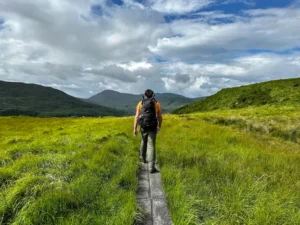Backpacking around the world is an exhilarating way to experience new cultures, explore breathtaking landscapes, and connect with people from all walks of life. It’s a travel style that embodies freedom and adventure while often being incredibly budget-friendly. But traveling on a tight budget requires planning, creativity, and a willingness to embrace a simpler lifestyle. In this guide, we’ll explore how to make your backpacking dreams come true without draining your bank account.
1. Plan Ahead and Set a Budget
Backpacking on a budget begins with careful planning.
- Research Destinations: Some countries are significantly more affordable than others. Southeast Asia, Eastern Europe, and parts of Central and South America are popular choices for budget-conscious backpackers.
- Create a Daily Budget: Factor in accommodation, meals, transportation, and activities. Having a daily limit helps you manage your expenses effectively.
- Track Your Expenses: Use apps like Trail Wallet or Splitwise to monitor your spending in real-time.
2. Travel Light and Smart
Packing the right gear is essential for a successful backpacking trip.
- Invest in Quality Gear: A durable, lightweight backpack and comfortable shoes are non-negotiable. Prioritize multipurpose clothing and compact items to save space.
- Carry Essentials: Reusable water bottles, a compact first-aid kit, and quick-dry towels are must-haves.
- Avoid Overpacking: Extra luggage means extra costs, especially with budget airlines.
3. Choose Affordable Accommodation
Finding a place to stay doesn’t have to be expensive.
- Hostels: Perfect for solo travelers and those on a budget, hostels offer dormitory-style rooms and a chance to meet fellow adventurers.
- Guesthouses and Homestays: These are often cheaper than hotels and provide a more authentic local experience.
- Camping: In nature-rich destinations, camping can be an inexpensive and scenic option. Some countries also allow wild camping for free.
4. Travel During the Off-Season
Timing your trip can significantly reduce costs.
- Lower Prices: Flights, accommodations, and tours are often cheaper during off-peak months.
- Fewer Crowds: Enjoy popular attractions without the tourist rush, allowing for a more relaxed experience.
- Better Deals: Many local businesses offer discounts to attract customers during quieter periods.
5. Save on Transportation
Getting around doesn’t have to eat up your budget.
- Public Transport: Use local buses, trains, or ferries instead of taxis or ride-hailing services.
- Overnight Journeys: Opt for overnight buses or trains to save on accommodation costs.
- Hitchhiking: In some countries, hitchhiking is safe and common among backpackers. Always research the local norms and prioritize safety.
6. Eat Like a Local
Food is one of the most enjoyable aspects of travel, and it doesn’t have to be expensive.
- Street Food: Discover authentic, delicious meals at a fraction of the cost of restaurants.
- Cook Your Own Meals: If your accommodation has a kitchen, buy fresh ingredients from local markets and cook your own meals.
- Eat Where Locals Eat: Avoid touristy restaurants and follow locals to find hidden culinary gems.
7. Embrace Free and Low-Cost Activities
Some of the best travel experiences don’t cost a thing.
- Explore Nature: Hike, swim, or simply take in the beauty of national parks, beaches, and mountains.
- Free Walking Tours: Many cities offer tours led by local guides, where you pay only a tip.
- Local Events: Check out free festivals, concerts, and cultural celebrations happening in the area.
8. Use Technology to Save
Travel apps and websites can help you find the best deals and stay within your budget.
- Booking Platforms: Use sites like Hostelworld and Booking.com to compare accommodation prices.
- Flight Alerts: Tools like Skyscanner and Google Flights notify you of fare drops.
- Offline Maps: Download maps to avoid data charges and navigate with ease.
9. Stay Flexible and Open-Minded
Flexibility can lead to unexpected savings and unforgettable experiences.
- Last-Minute Deals: Be open to adjusting your itinerary to take advantage of discounts on flights, accommodations, or tours.
- Spontaneous Decisions: Sometimes the best experiences happen when you veer off the planned path.
- Adapt to Circumstances: Embrace changes with a positive attitude—it’s part of the adventure.
10. Earn While You Travel
Stretch your budget further by finding ways to make money on the road.
- Freelance Work: If you have skills like writing, graphic design, or coding, you can work remotely.
- Teach English: Many countries offer opportunities for English speakers to teach in exchange for pay or free accommodations.
- Work Exchanges: Platforms like Workaway and WWOOF connect travelers with hosts offering free food and lodging in exchange for work.
11. Leverage Travel Rewards
Maximize the benefits of loyalty programs and travel credit cards.
- Earn Points: Accumulate points through flights, hotels, and everyday purchases.
- Redeem for Freebies: Use points to cover flights, accommodations, or other travel expenses.
- Avoid Foreign Fees: Choose cards with no foreign transaction fees to save on international spending.
12. Connect with Fellow Travelers
Backpacking is as much about the people you meet as it is about the places you visit.
- Join Communities: Online forums and social media groups can provide tips and connect you with like-minded travelers.
- Share Expenses: Split costs for transportation, accommodations, or activities with fellow backpackers.
- Exchange Knowledge: Learn from others’ experiences to find hidden gems and avoid common pitfalls.
13. Prioritize Safety
Budget travel doesn’t mean compromising on safety.
- Stay Informed: Research the safety of your destination and take precautions against scams.
- Trust Your Instincts: Avoid situations that feel unsafe and stick to well-lit, populated areas.
- Emergency Contacts: Keep a list of local emergency numbers and your country’s embassy information.
14. Avoid Hidden Costs
Unexpected expenses can derail your budget if you’re not prepared.
- ATM Fees: Use cards that waive international ATM charges.
- Tourist Taxes: Research local fees and include them in your budget.
- Packing Essentials: Bring items like sunscreen and toiletries to avoid overpriced purchases abroad.
15. Document Your Journey
Capture your experiences without overspending.
- Photography: Use your smartphone or a basic camera to document moments.
- Journaling: Write about your adventures to relive them later and share with others.
- Budget Tracker: Keep a record of expenses to learn from your trip and improve future planning.
Conclusion
Backpacking on a budget is a deeply rewarding way to see the world. It’s not just about saving money—it’s about embracing simplicity, connecting with people, and immersing yourself in the moment. By planning wisely, traveling light, and being resourceful, you can create unforgettable memories without overspending.
The joy of backpacking lies in its unpredictability and the freedom it offers. With these tips in hand, you’re ready to embark on an adventure that enriches your soul without emptying your wallet. So pack your bag, lace up your shoes, and set out to explore the world on a budget—you’ll be amazed at how far it can take you.




